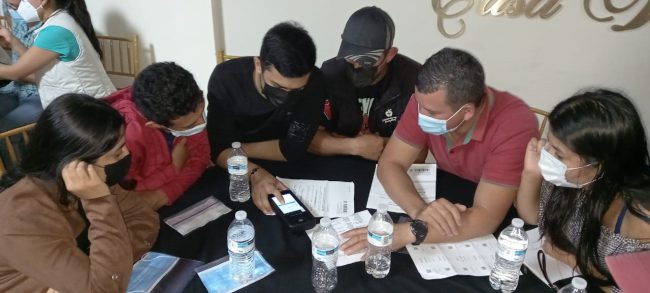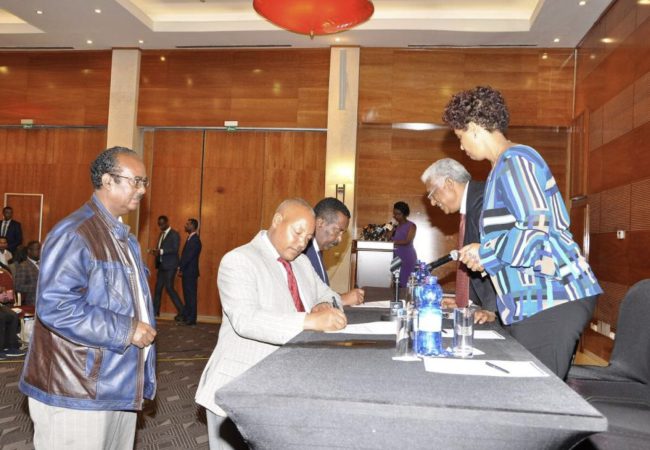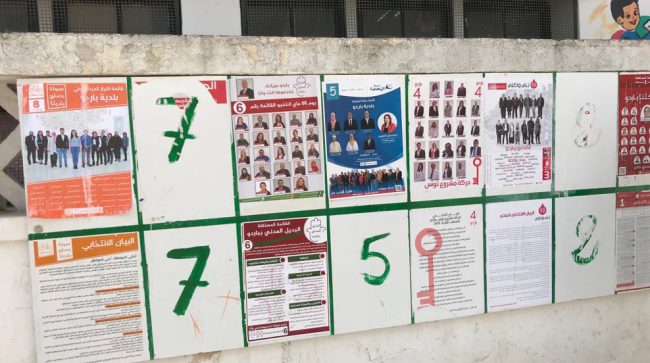Working towards inclusive elections
Our Goals
Genuine and credible elections play an important role in inclusive democracy. They provide a crucial opportunity for all voters to participate in their democracy and make their voice heard.
But, in order for elections to play this role, they must fulfil certain criteria. They must present citizens with a real choice, where different parties adopt clear and distinct policies. And where the candidates reflect the diversity of society – and all groups have a fair chance of running.
More than that, elections must be transparent, in order to inspire trust among the general population. People must feel fairly represented by their political system if they are to cast their vote at election time.
That’s why we need inclusive and transparent electoral institutions, which advance and protect the level playing field.

We also need inclusive electoral laws, which safeguard citizens’ equal opportunity to participate in elections. These laws must ensure that elections are free and fair. And they must also set in motion systemic changes to empower under-represented groups and remove obstacles to political participation. Take, for example, electoral laws that include a quota system for women, youth or indigenous people. These boost the inclusiveness of elections and give under-represented groups a direct opportunity to influence political decision-making.
At NIMD, our goal is to support the development and implementation of inclusive legislation around elections, to ensure that all people can truly have their say on election day.
Our Approach
NIMD’s unique approach to supporting inclusive electoral legislation starts with working closely with electoral institutions themselves. As these institutions hold the key to implementing inclusive legislation around elections, we work to ensure that they have the tools and skills they need to perform that role effectively.
In addition, through our dialogue, we create valuable links between Electoral Management Bodies (EMBs) and the Congress commissions that deal with electoral and political party reform. And we set the stage for inclusive electoral reform.
Our work with Electoral Institutions
In our work with EMBs, NIMD aims to strengthen and empower these organizations, helping them develop the skills and tools they need to make a full and meaningful contribution to their democracies.
When EMBs fulfil their tasks well, national elections become more transparent and representative; a process which improves people’s trust in elections and the quality of their democracy and reduces feelings of marginalization from politics.

What is an Electoral Management Body?
An electoral management body (EMB) is the state institution responsible for electoral management. Some of their core tasks include overseeing voting eligibility criteria, reviewing and validating electoral candidates and parties, conducting the polling and the votes, and tabulating the votes.
Some EMBs are also in charge of voter registration, drawing voting district boundaries, resolving electoral disputes, monitoring media and campaigning, and even voter education and information. The exact responsibilities of EMBs vary across countries, as does their relationship to government. However, in all cases, these institutions must ensure that all political actors stand a fair chance to compete – regardless of their gender, ethnicity, economic background, or ideology.
Types of support
In our work to strengthen EMBs, we provide different types of support:
- First, we help with strategic planning processes. We help EMBs to identify the right moments for their actions, based what’s needed at different points in the electoral cycle. By planning effectively in advance, EMBs can ensure their work has an impact, and they have a good basis for adapting to meet the evolving needs in their country.
- We provide EMBs advice and support on the drafting of manuals and guidelines. With these tools, EMBs have the right processes in place, which ensures continuity and accountability. We also assist in training electoral observers on these new guidelines.
- We undertake research and comparative analysis of existing political party and electoral laws in different countries. It helps for EMBs to know how other countries organize their system and to learn from experience in other countries.
- We give specialized technical advice on practical issues. Often, this means putting EMBs in contact with experts on the intricacies of electoral management. Such advice is essential, as elections are a technically complex undertaking. In addition, we help EMBs to access the specialized technology needed to carry out their functions.
Our support aims to close any potential capacity and technical gaps, and provide long-term assistance to think along with these institutions. Through our institutional strengthening, we help EMBs take up their crucial role of implementing inclusive electoral legislation, and in the long run, build a strong and inclusive democracy.
Supporting inclusive legislation through dialogue
An important aim of all NIMD’s dialogue initiatives is to support the adoption of inclusive legislation. Through dialogue, we aim to build trust, collaboration and consensus between political actors and other stakeholders. By working together long-term, and really listening to each other, these groups can put forward new electoral laws, regulations, and policy changes that work in the interests of the population in general.

Through dialogue, we bring together political actors from across the political spectrum to work on electoral legislation. Electoral and political party reform are particularly sensitive issues, and political parties have a lot of skin in the game. Therefore, trust-building and dialogue between political parties is essential to get to a shared understanding of the problems and solutions.
After a basic level of trust has been established, such political dialogues focus on specific issues within the country’s electoral reform agenda – such as women’s representation in parliament – to help reach a consensus on necessary electoral reforms.
However, our work on dialogue does not stop there. NIMD also facilitates multi-stakeholder dialogues around legislative and electoral reform. These broader dialogues bring together political parties, members of parliament, Electoral Management Bodies and civil society, in order to ensure that diverse voices and expert opinions are heard and inform one another.
For example, we bring EMBs together with the Congress Commissions responsible for electoral and political party reform. By engaging in dialogue on particular issues, EMBs can think along with politicians on legislative changes that could provide more transparency or inclusion during elections. By consulting with the EMBs, the Congress Commission gains valuable insight into potential needs, and challenges with implementation.
In addition, when political parties and members of parliament have the chance to engage with civil society on electoral issues, it can provide valuable input for policies and reforms.
Inclusive reform happens in between elections
Our work on inclusive elections is designed to promote genuine and credible elections. It’s about making sure everyone has an equal say.

But we recognize that most of the work towards this reality happens between election cycles.
Through dialogue, NIMD contributes to the follow up and implementation of recommendations of Electoral Observation Missions, truth and reconciliation reports and peace processes. We facilitate political and multi-stakeholder dialogue to advance these processes in the period in between elections, when reform is less politically sensitive.
We have also used our experience to contribute to the European Partnership for Democracy (EPD)’s Action for a Holistic Electoral Approach for Democracy, a new approach which aims to connect electoral support more deeply to longer-term democracy support strategies.
In addition, we provide long-term support and dialogue opportunities to the political actors we work with. We hope that, by building their resources and providing opportunities to make their voices and needs heard between election cycles, we will empower politicians, EMBs and civil society to sustain their democracies, building trust and confidence in the election process.
Practical Examples
In Honduras, alongside our work with electoral institutions, NIMD facilitated a dialogue on existing quota regulations. The existing law required a quota of women to be presented on party lists for elections, but allowed women to be placed at the end of the list, effectively reducing their chances of election. As a result of the dialogue, the law was amended with a specific regulation requiring women and men to be placed on the list in a “zipper” system (man, women, man or women, man, women) This boosted the inclusiveness of the 2021 elections and gave more women a direct opportunity to influence political decision-making.
In Ethiopia, NIMD has been involved in democratic reforms, in the context of widespread distrust between political parties and towards the EMB. NIMD engaged in capacity building and dialogue between the different stakeholders, working with everyone from parliament to the EMB. This combination of trust-building, dialogue and technical assistance culminated in the passing of electoral reforms in 2019 with the agreement of all political parties, and the signing of a Code of Conduct on parties’ rules of engagement by the different political parties. While the EMB was greatly distrusted in 2018, the EMB became considered as a neutral and trusted institution through the dialogue process and NIMD support.
In Kenya, the cost of running an election campaign and holding office is exceedingly high. Many people – particularly marginalized populations, youth and women – are therefore excluded from publicly elected office. NIMD commissioned research on the cost of politics in Kenya recently, at a time the EMB was initiating a cap on election spending. The evidence generated by NIMD effectively empowered civil society actors to have a seat at the table in discussions on campaign financing laws, pushing the national assembly towards spending ceilings.
